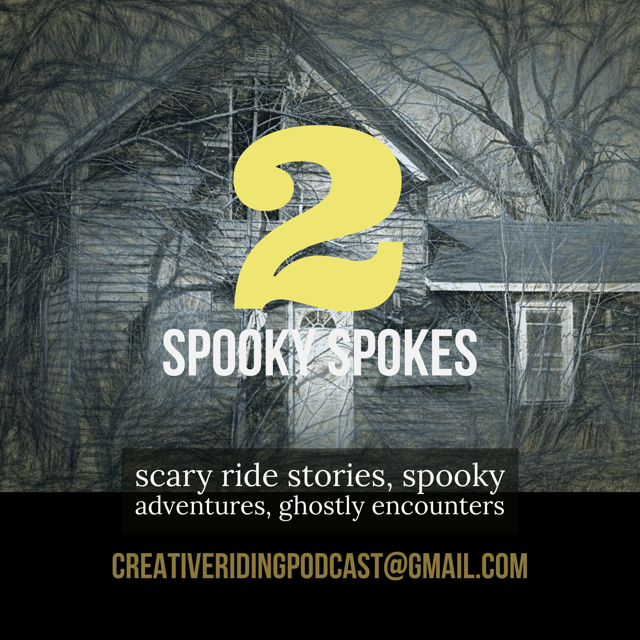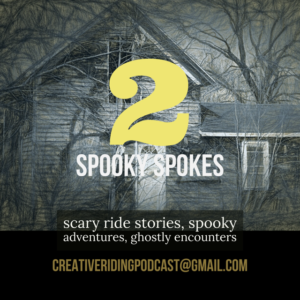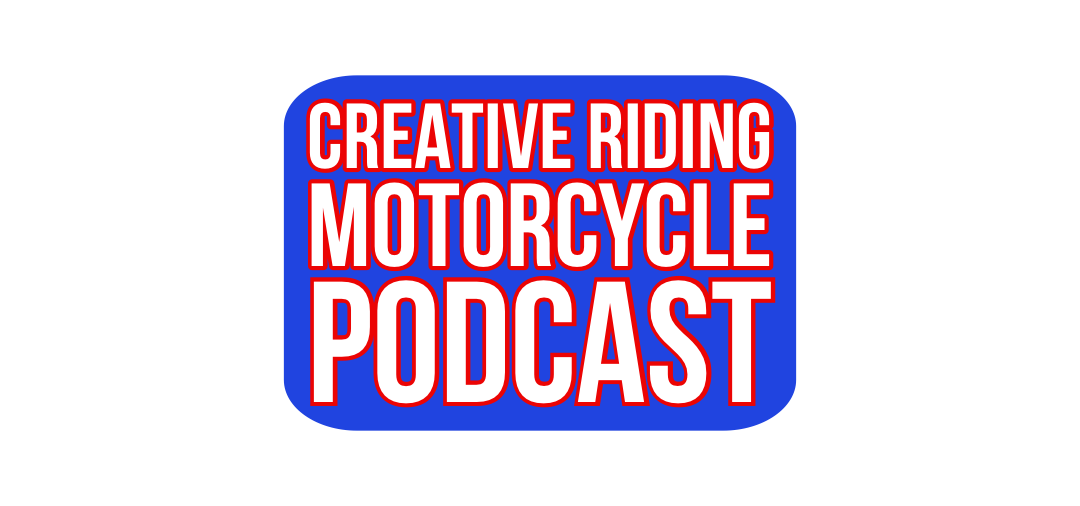Spooky Spokes

As the vestigial warmth of summer concludes, it’s time to start thinking about Spooky Spokes…
The 2nd annual Spooky Spokes episode is only weeks away. The yearly fright-fest that Creative Riding added to it’s show line-up celebrates all things creepy. You got a tale? SEND IT!!

From spider season in the U.K. to hurricane season in the U.S.A., the tell-tale signs of Autumn’s approach are everywhere.
Soon the chilly bite of the morning air and the changing colors of the leaves will remind us that the barren landscape of winter will be here before we’re ready.
With the change in weather also comes the time of year that we have come to associate with harvest, hard work, and Halloween…
While it’s true that the department stores can’t wait to score your $39.99 ‘costume fee’ each year, autumn represented something much different to the ancient cultures from which humans descend.
Many cultures around the world celebrated the change from prosperous times to a time of rest and recovery with festivals and celebrations that focused not only on the future, but also the past.
From the cold Norse landscapes, tropical jungles of South America, and all over North America and much of Europe & Russia, this included a time to both remember and pay respects to the dead and gone.
Most societies had a time of spiritual liminality when the dead, or their spirits, could pass through to this world. If not physically, then through traditional feasts or offerings which honored and sought to make peace with the departed.
Although most ancient celebrations and traditions have been altered or watered down (and eradicated altogether) by modern religious practices and societal norms, there still seem to be vestiges of those beliefs holding on in the background of everyday life as we know it today.
How else would we otherwise justify making a brisk u-turn after a black cat runs across the street in front of us, or our belief in the bells that we gift others to keep road gremlins away?
In many countries around the globe, practices of the past were carried down until fairly recent times when agricultural communities became suburbs, and farming was replaced by gaming and internet shopping. Some old beliefs still have a strong hold in rural communities where modern life has been staved off by quiet living and hard work.
Along with the customs and ethics of the world long-gone came it’s folklore. Folklore, as you well know, is far harder to trash. It has woven itself into the fabric of time, changing and moving with each generation, but always unwavering in its message. From simple wives-tales to horrible accounts of the dead seeking revenge, folklore has made more of an impression on society than kings, queens or even dictators could ever have hoped.
Early folklore was passed down through spoken tradition. Folklore was really the earliest form of Saturday night entertainment. It was the Netflix of the ancient world. That continued pretty much up until the last century, when radio was invented and mass-distributed.
While fables and children’s stories came from philosophical lessons, stories of grand battles and prosperous rulers were also reflected in regional folklore.
Once written down, Greek stories and ancient epochs were reimagined. Folklore expanded to a whole new media, and could travel across lands and languages. Old works from ancient Rome, Macedonia and northern Africa made their appearance in new lands.
Works like The Odessy and The Illiad (800 years B.C.E.) to Beowulf (1000 years A.C.E.), epic tales of siege, hardship, loss and triumph were now being shared and adapted to other ethnicities.
Through the 1300-1600s plays, operas and texts turned the ancient works into something more. Chaucer and Shakespeare also popularized a vivid new way of storytelling. Authors in the 1700-1800s mixed folklore as well as occult (from the Latin- ‘knowledge of the hidden’, not the contemporary context of the word ‘cult’) ideas and themes to write prose that would itself become the forebear of modern horror and thriller fiction. Mary Shelley’s Frankenstein: or The Modern Prometheus is one example.
The populated city centers of the past pale in comparison to the metropolitan areas that have popped up since the 1930s, with highways, byways and turnpikes connecting even the most rural towns in today’s world. Yes, the past was a still and barren world in contrast to what we are used to today, yet no matter where you live the folklore and ritual of your predecessors is not that far removed from what it was a thousand years ago.
Given the portrait of the world even 100 years ago, perhaps we can explain why most horror movies take place in old, remote locations. That setting elicits a feeling of familiarity, yet still feels eerily disconnected from the safety of our modern, cozy, electric lifestyles.
Common themes involve a spooky old person who still lives by the old ways- disconnected from technology and unburdened by modern convenience.
Many works of horror also refer to ancient powers or remnants of a culture that has only recently been discovered… or exterminated.
Some horror features the inability to control our own bodies or fates- something which ancestral people feared in a world of constantly changing leadership, ideology, war, slavery and plague to name a few things.
Like the fables and folklore of our forefathers, the lessons and emotions that they provoke live on, engrained in our DNA. Our social psyche depends on them to help us make decisions and provide inner dialogues that guide our judgement. So it should come as no surprise that, we too, find ourselves plagued with uncertain fear and uncanny sensations when we are uncomfortable. Perhaps after we have ventured down a shadowy path, or find ourselves alone on a dead end dirt road… just us, two wheels, and the thousand souls on the other side of the ether watching-hoping to teach us a valuable lesson about solitude.
